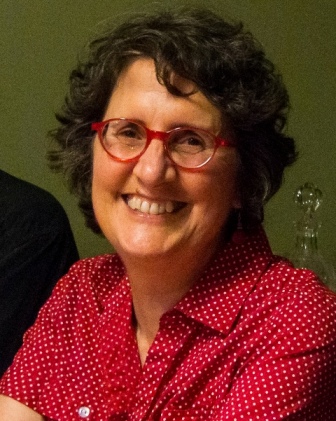In search of institutional courage
Jennifer Freyd has done more than just about anyone else to inspire institutional courage instead of institutional betrayal, especially in regard to the handling of sexual violence complaints on college campuses. This week her former institution, the University of Oregon, ended its cowardly defense of sexist pay practices by agreeing to a settlement in her 2017 lawsuit over pay disparities.
A professor emerit of psychology at the university, Freyd (pronounced “fried”) found that she was underpaid because the university rewarded behavior more common in men on the faculty. Namely, men were more likely than women to seek offers of employment elsewhere. The university then would increase their pay to retain them. Faculty who analyzed her case agreed with her point. But university officials fought her in court at much greater cost than if they simply had agreed to pay her equitably. You can read details of the settlement here.
Freyd’s career included groundbreaking work on betrayal trauma (see her book Blind to Betrayal). She spread the concept of DARVO — the response from many perpetrators when accused of sexual violence — which stands for Deny, Attack, and Reverse the Victim and Offender. Once you’re aware of DARVO, you’ll see it coming from most of the big-name accused perpetrators, from Bill Cosby to Brett Kavanaugh to Clarence Thomas and many more.
The University of Oregon made conducting her work harder than necessary. But she persevered, an important ally to sexual assault survivors on her campus and nationwide. See much more about her important work here.
As part of the settlement, the university agreed to give $100,000 to the non-profit organization that Freyd founded recently, the Center for Institutional Courage. We need a lot more of this kind of courage in academia right now. Let’s hope the University of Oregon gained some institutional courage.
Next steps for Title IX
There’s more good news! The U.S. Department of Education’s Office for Civil Rights (OCR) is moving steadily toward undoing the Trump Administration’s harmful rewrite of the Title IX regulations governing how educational entities handle complaints of sexual harassment and assault. This will be a long process taking probably a couple of years at least, due to legal requirements. OCR held a week of public hearings in June on possible changes. You can see a transcript of the often moving testimony here.
The rewrite can’t happen fast enough. Meanwhile, OCR this week released a Q&A advising educational institutions about their options for fairer procedures to follow until the regulations get revised. Some procedures are mandated, but in other ways there’s leeway to do the right thing. The courageous thing.
Similar advice came recently in a public webinar sponsored by It’s on Us and the National Women’s Law Center. The talk by NWLC attorneys Shiwali Patel and Elizabeth Tang started with a succinct history of Title IX.
They reviewed the harmful changes within the Trump revisions to Title IX regulations. But they also listed areas that sexual assault survivors still have rights. Sometimes these provide ways to still hold institutions accountable, to demand prevention of sexual assault and compassionate, effective treatment of those who get assaulted.
I’ve posted a pdf of the slides from that talk on my Resources page.
Between OCR’s Q&A and NWLC’s The Current Status of the Title IX Rule, students can learn how to navigate the current system until it can be improved. Proposed new Title IX regulations may come in May 2022, the 50th anniversary year of Title IX.









Thank you to Prof. Freyd for that critical work. Chiokoe uttesia in jala’i (Thank you my friend) Sherry for illuminating this important herstory.